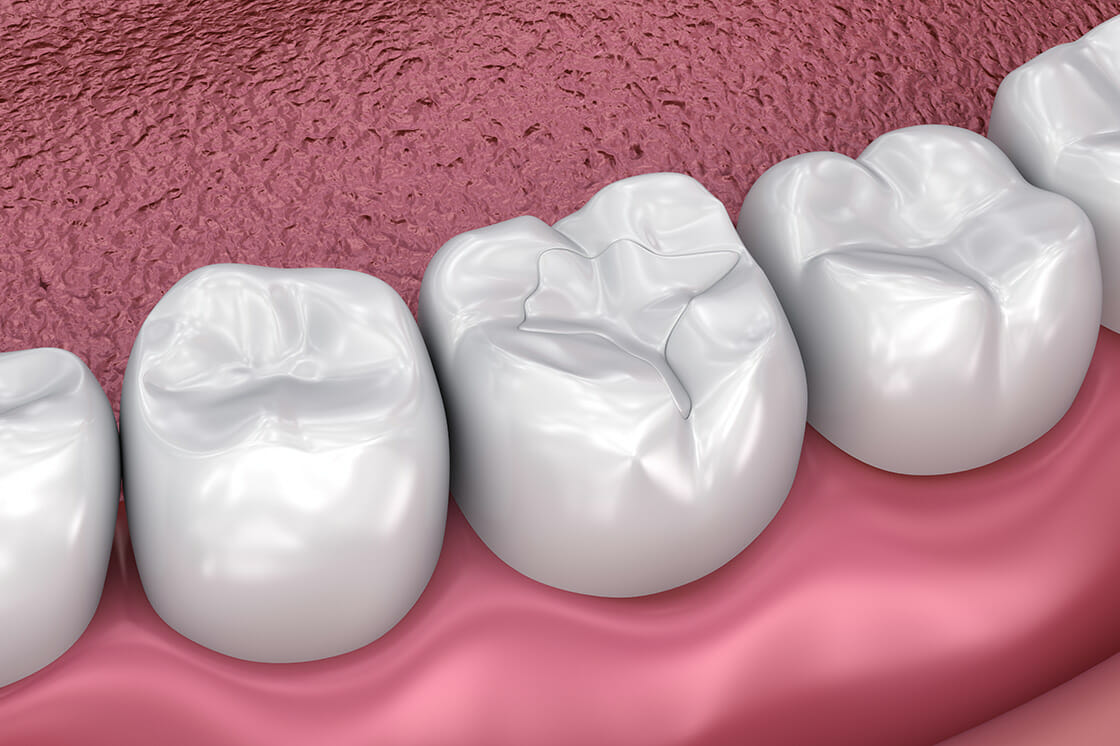
Dr. Mays can provide dental sealant treatments to protect you, and your family’s teeth from decay. This is a preventive measure to help avoid costly and more intensive dental care in the future.
What is a dental sealant?
Made of thin plastic, dental sealants are applied to the chewing surfaces of the molars to protect them from decay. The sealant bonds to the surface of the molar, sinking into the decay-susceptible grooves of the tooth.
Why should I get sealants?
The chewing surfaces of your teeth are in constant contact with food and drink, causing them to be particularly vulnerable to decay since they do the majority of the chewing and grinding-up required for digestion. Sealants provide an extra layer of protection to these surfaces from decay. Daily brushing and flossing definitely help to defend against tooth decay, by sealants physically “seal out” plaque and food particles from the chewing surface.
What is the process of getting sealants?
First, Dr. Mays will thoroughly clean and dry your teeth, and an absorbent material will be placed around the tooth to keep it dry throughout the process. Following this, an acidic substance will be applied to the teeth, which will help them “roughen up” in order for the sealant to bond more tightly to the tooth’s surface. The teeth are then cleaned, rinsed, and dried again in final preparation for the application of the sealant. Dr. Mays will paint the sealants onto your teeth, where they’ll sink into the grooves of the molars. The sealant will harden, effectively sealing off the clean tooth from materials that could cause decay.
When should I get sealants?
As soon as molars grow in, it is important to schedule an appointment to get sealants. This means that most people get sealants when they are children. The earlier the molar teeth are treated with a sealant, the sooner they benefit from its protection. With that being said, sealants can also be applied to premolars as well, also known as “baby teeth.” When your child’s first set of molars grow in, you may consider having Dr. Mays apply sealants to their teeth, protecting them against daily use. The same process needs to happen when your child’s adult set of molars fully erupt since they’ll be using these teeth for the rest of their lives. The years between ages 6 and 14 are cavity-prone, and sealants can help reduce the number of cavities your children may get.
Call us at our Cincinnati office today to schedule an appointment!
